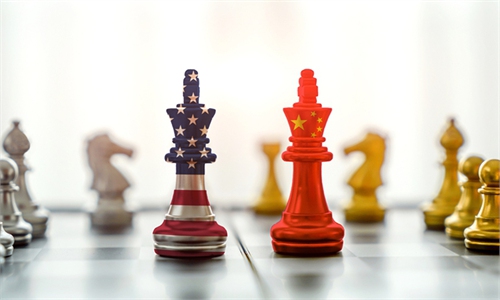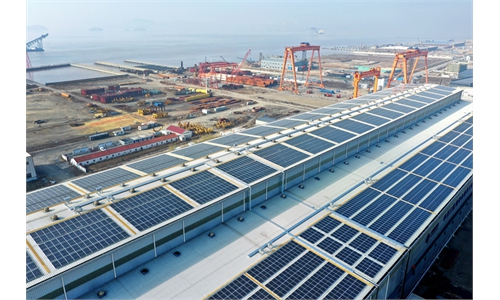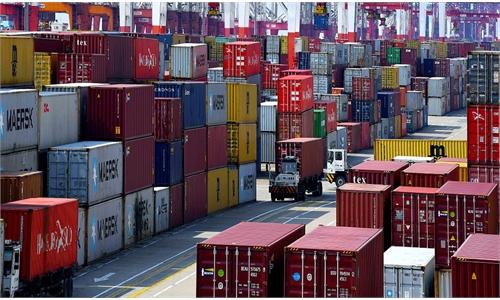
China US photo:GT
While the Biden administration insists on levying tariffs on Chinese goods as a leverage to contain China's rise, it is unlikely for Washington to give up the leverage anytime soon.With the tariffs the former Trump administration imposed on more than $300 billion worth of Chinese imports about to expire, the Biden government will soon start a review, needed to prevent their expiration, Bloomberg reported on Sunday.
There have been growing calls for the US to end its unprecedented tariffs war with China, but the Biden administration's past attitude toward trade with China suggests that the officials in Washington are unlikely to choose the path that will make bilateral trade easier, even though the US economy is suffering from a skyrocketing inflation and rising public complaints.
The US consumer price index for January rose a hefty 7.5 percent year-on-year, the highest rate in the past 40 years and the ninth straight month of inflation above 5 percent. If anything, this is the latest example of how the tariffs imposed on Chinese goods have made American businesses and consumers bear the cost of tariffs in the form of higher prices of imported Chinese products.
None of the results the US government had initially hoped to achieve through the punitive tariffs have materialized. China's goods trade reached $6.05 trillion in 2021, up 30 percent year-on-year and marking a record high. Data from the US Commerce Department showed that US trade deficit with China widened 14.5 percent to $355.3 billion in 2021.
Sadly, however, American's reliance on Chinese supply chains has not changed the Biden administration's outdated thinking that eliminating the tariffs and calling an end to the reckless trade war will favor and help China. And, a Bloomberg report said late last year that the Biden administration was considering a so-called Section 301 investigation into China's industrial policies that could result in extra tariffs and restrictions on Chinese investments.
The US' stubbornness stems from its political environment that prioritizes ideology-driven zero sum game over economic fallout. Even though the US government clearly knows that the US economy will continue to suffer from the additional tariffs, it is more inclined to avoid the criticism of being seen soft on China.
From China's point of view, no matter what the trade policy the US adopts, China has its economic policy agenda to stabilize economic growth amid economic transformation and global uncertainties. And, maintaining stable trade will contribute to stabilizing economic growth. In 2021, China's net exports contributed 1.69 percent to its GDP, which grew 8.1 percent over 2020.
Delivering his annual work report to the legislators on Saturday, Premier Li Keqiang said China will adopt a package of steps to stabilize foreign trade, while deepening multilateral and bilateral economic and trade cooperation with its partners.
This year, the central government work report made no mention of trade with the US, which doesn't mean that China-US trade is no longer important but reflects the confidence that the bilateral trade that has weathered years of trade war is unlikely to worsen. China will turn more attention to exploring trade with partners of the Regional Comprehensive Economic Partnership (RCEP).
To some extent, what the US decides with its China trade policy won't have much an impact on China's trade outlook and China's economy. And, the problems inhibiting the US economy now are largely of their own making. Washington cannot solve its economic problems by keeping on blaming China.



